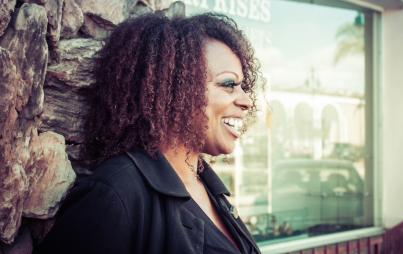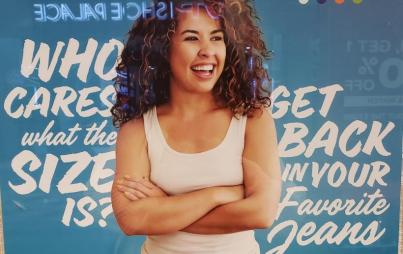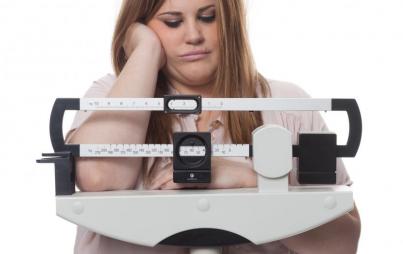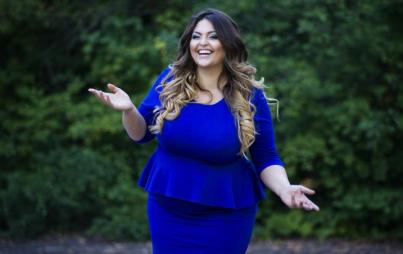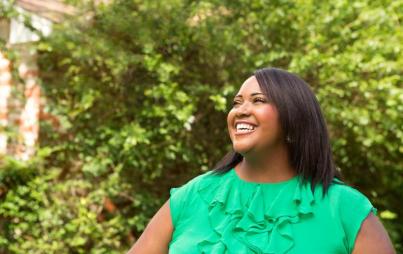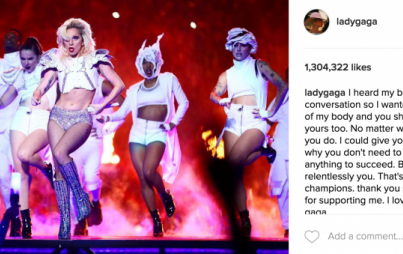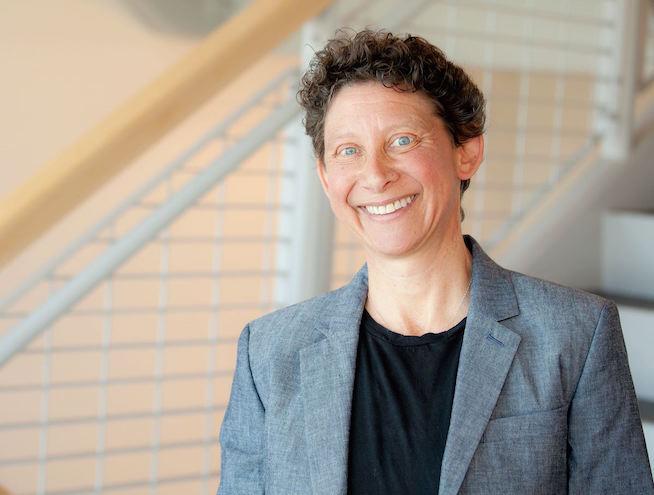
You may have seen the acronym "HAES" floating around the Internet, and that is because the "Health At Every Size" movement has taken over THE WHOLE WORLD. OK, maybe not the whole world, but much of the online body positivity/fat acceptance world for sure. HAES has a pretty simple premise: your weight does not determine your health. That whole Fat People Are All Unhealthy Because Fat Is Unhealthy this is a myth! Perpetuated to make you want to buy lots of gym memberships and bland granola bars! HAES is an alternative route to health that bypasses body shame and diet culture, one that works for an awful lot of people. And we have Linda Bacon to thank for it! She literally wrote the book on the subject, and I was lucky enough to talk to her about it.
Can you share a bit of your background with our readers?
In the preface to my first book, Health at Every Size: The Surprising Truth about Your Weight, I wrote about my history of food and body challenges, the education I pursued in trying to get out of that pain, and the healing journey. The short synopsis: from a very young age, I thought I was fat, that there was something wrong with being fat, and that if only I could lose weight, I’d get the love, acceptance and respect I deserved. That started me on the very painful path of fighting my weight: diets, exercise, and a slew of desperate measures too painful to dredge up again. I was very good at losing weight. But it rarely lasted for long, and never brought the peace I was hoping for.
My pain was so preoccupying when I was in college that I figured I had little choice in a course of study: I became determined to understand everything I could about weight. Three graduate degrees and tons of hours immersed in laboratories, books, and clinical practice, and I emerged with a very different perspective, having determined that the problem had nothing to do with my weight and everything to do with my misinformed ideas about weight. I not only recovered from my weight obsession, but even more importantly, I learned to love food and enjoy my body. And letting go of the shame I had felt led to other great stuff, like more depth and fulfillment in my life, including deeper intimacy in relationships.
Now, my goal is to help translate what I learned in a way that is meaningful for others, and that’s at the heart of my writing and public speaking.
The HAES book and community really did change my life. I know that's cliché, but as a medical professional I was spoon-fed the very typical mainstream medical information — nuances weren't discussed — HAES provided me with the groundwork for critically considering the things I have taken as gospel, so to speak. I wonder if you hear from folks and what they have to say about how it's changed them.
I’m so honored to hear that from you and others. I love hearing everyone’s stories of personal transformation, and it’s such a privilege to be part of that journey. And to know that people who I influence — like you — are carrying the torch, making change in other unique and powerful ways.
This movement is all about respect, and learning how to treat ourselves — and others — with kindness and compassion. (Not so surprising that word, respect, features in the title of my second book Body Respect: What Conventional Health Books Get Wrong, Leave Out, or Just Plain Fail to Understand about Weight, which I wrote with Lucy Aphramor.) Much of the feedback I get from people about how the Health At Every Size® (HAES) approach has been transformative for them stems from this idea.
It’s really not so hard to come up with the major themes I hear from others. For the people who come to the HAES movement because of their struggles with weight, the most common refrain I hear is that as they learned to respect their drives and to trust themselves. It helped them to follow their appetite as opposed to a calorie chart, and how freeing this was. They report that these lessons spilled over into other aspects of their lives, supporting them in making better health choices overall and feeling more fulfilled in their lives.
For the health professionals, this idea of respect also manifests: they report that prior to HAES exposure they had been trying to impose their ideas onto their clients, giving them eating and weight loss prescriptions, for example. But the HAES approach freed them up to listen to their clients and to trust their experience, which in turn led them to be critical of conventional “wisdom.” Another side effect I commonly hear from professionals is that their jobs now feel much more rewarding.
In the appendix to Health At Every Size, I tried to capture the major points that seem to have a large impact on opening people to HAES values, specific to different professions or viewpoints. They’re available as free downloads on the book’s website. You’ll also find many other resources available on my website, organized by topic.
From your experience, what do you think is the crucial component that helps people to open to a Health At Every Size approach?
I think we all want to know: What is that magical formula that allows people to “get” this? What can we say or do that’s going to inspire that “eureka moment” in someone else, help them make the leap from pain to freedom?
I believe the single most important change happens when people recognize the freedom that can come from letting go of measuring ourselves against others’ expectations or ideas of who we’re supposed to be, and just accepting ourselves as we are. While that’s not something that occurs in a single eureka moment, the flashpoint may be when you recognize its value and that the ideas you are clinging to about self — and about your conception of what’s true about yourself or others or your ideas about weight — may be what’s getting in the way of contentment.
In other words, what would happen if instead of looking at yourself and feeling like you’re too fat or too thin, or not pretty enough, or don’t earn enough money, or whatever the issues are for you, if you just saw yourself, as you are right now, and thought, “I am enough, just the way I am right now.” How would this change the way you eat, the way you dress, the way you interact with other people?
Part of my backstory is that I felt deeply inadequate as a girl and young woman. There was no amount of makeup, no dress pretty enough to allow me to feel comfortable measuring up to that feminine ideal that my parents wanted for me, or that I felt would make me socially acceptable. And this fear was legitimate: girls who didn’t “do femininity” well did get rejected and bullied in the suburban town I grew up in, and my parents made it clear that they expected me to “dress and act like a girl” — and had very conventional ideas about what this entailed.
That idea of not feeling good enough as is parallels my food and weight discomfort. That quest for an acceptable body — not the one I had — drove my weight loss attempts and spiraled into an eating disorder.
But the real issue wasn’t about food or weight, it was really about feeling that there was something wrong with me, at core. My relationship with food and my body is much more complex than can ever be addressed by what I weigh, whether I limit my sugar intake or eat my veggies. And when the conversation comes down to what to eat, and how much, and how to eat “right,” it ignores the larger questions about what really drives our food choices, and re-inscribes the feeling of self-blame for not getting it right.
But the truth is: Who we are matters. How I relate to categories like gender and femininity, for example, is deeply woven into my relationship to my body and to food. We’ve all been set up for a certain way of relating to food and to our bodies that is at once deeply personal AND politically inscribed: linked to social constructions of weight, gender, race, class, and all the other diverse expressions of humanness.
There was no way I could trust my drive to eat if I didn’t examine the emotional drives that distracted me from more physical needs, which included a discomfort in being my authentic self, and if I didn’t critically challenge social constructs. The healing journey required me to own this authentic self and find appreciation for my unique expression of gender, for example, rather than getting stuck in that feeling of failure because I will never feel comfortable in a dress. And it requires others to find safety in their unique expression of gender, recognizing that it’s not a binary system and that few of us neatly fit into those gender boxes all of the time and in all ways.
The healing journey is really all about self-acceptance, which requires critical challenge of deeply held beliefs, whether it’s about what we’re supposed to look like, how we’re supposed to eat, or what gives us value. And this includes challenging all the ways we are marginalized, or marginalize others, and valuing everyone’s unique expression of identity. These realizations led to my second book, co-authored with Lucy Aphramor, called Body Respect: What Conventional Health Books Get Wrong, Leave Out, or Just Plain Fail to Understand about Weight, deepening the conversation.
I know you have a new book coming (I'm really excited about it!). Can you tell us a bit about it and when we can expect it?
I’m currently working on the provisionally titled Eating Made Simple, and What Conventional Thinking Leaves Out, Gets Wrong, or Just Plain Fails to Understand about Food, Eating and Bodies. I’m excited too and as curious as anyone else as to when it will be ready for publication! The rough draft is done, but it just hasn’t quite come together yet for me. I’ll be sure to send you a heads up when it’s available, and interested readers can also get on my mailing list to get an alert.



